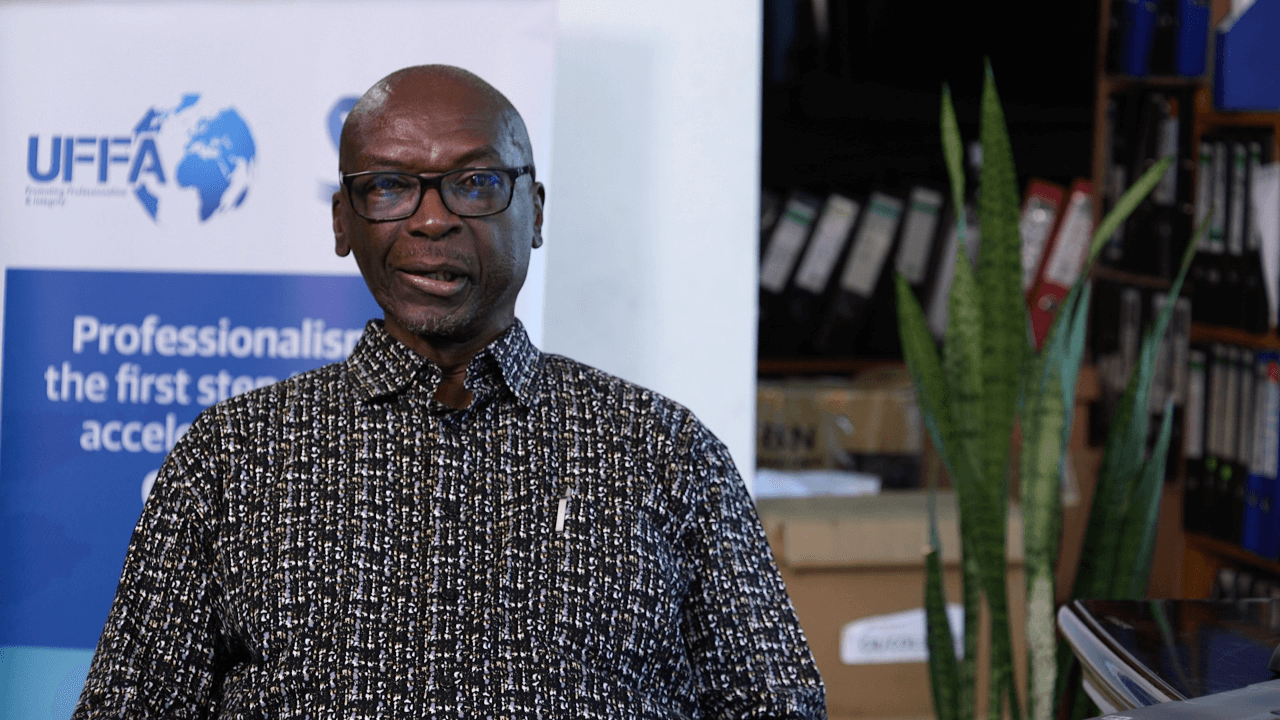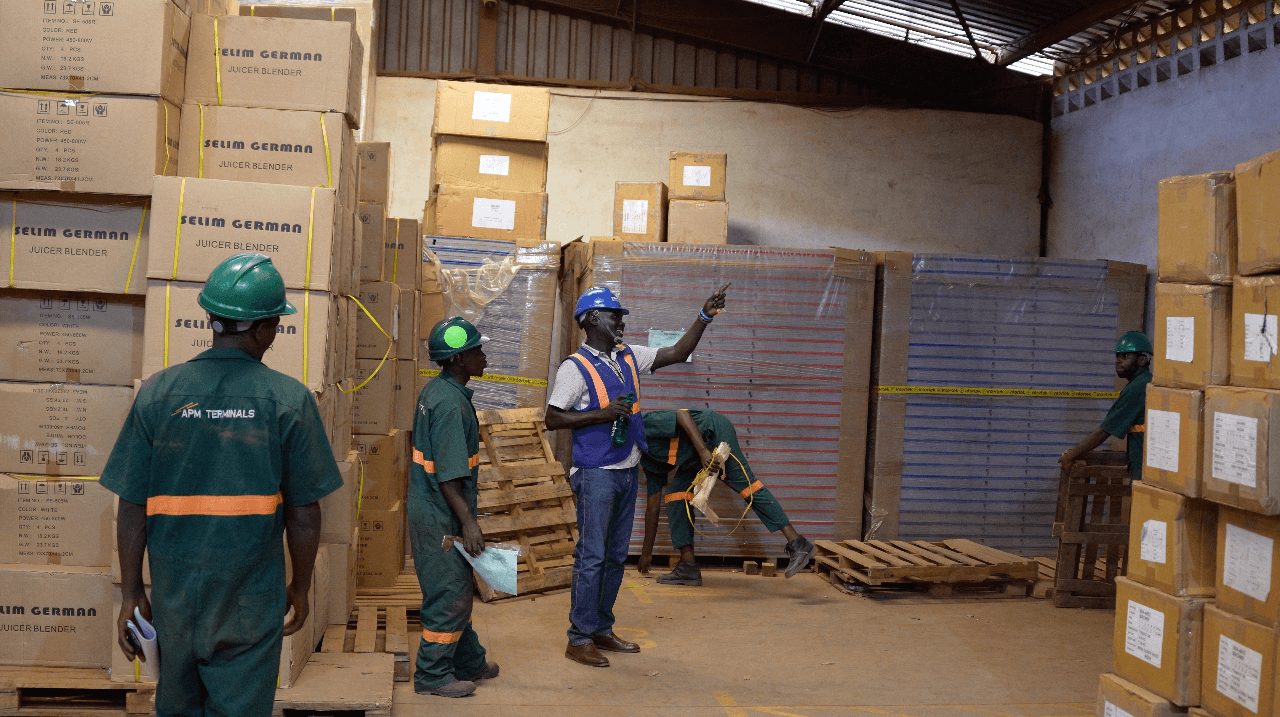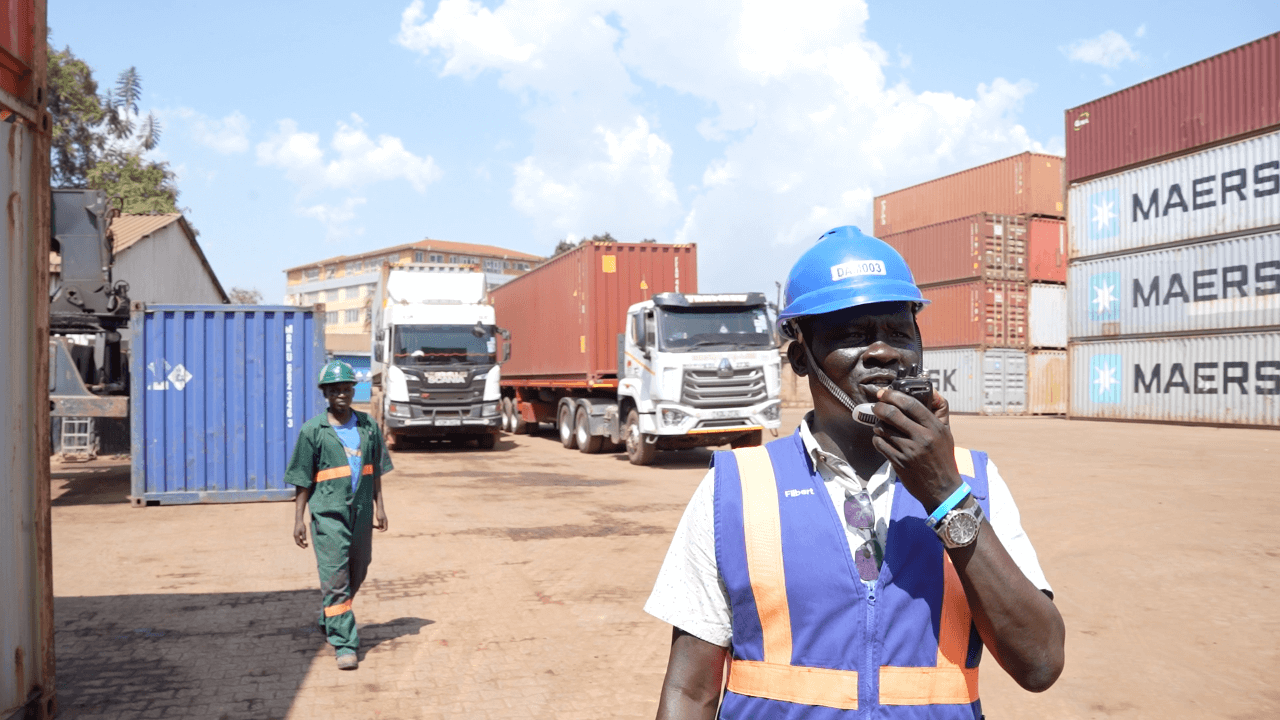Ondoga Job Filbert, a customs liaison officer at APM Terminals Uganda, stands in front of a Maersk truck. Once a hopeful graduate, Filbert’s journey into logistics was shaped by regional training and certification efforts.
For years, East Africa’s borders were chokepoints. Cargo often sat idle for days, and one of the reasons was the lack of training among customs clearing and forwarding agents. Many struggled to interpret trade laws, classify goods accurately, or navigate clearance systems. This created friction with customs officials and stalled clearance processes. For traders, the consequences were grim. They faced lost time, increased storage and demurrage fees, and missed business opportunities. But change has begun, one customs agent at a time, through targeted training and professional certification delivered through a collaboration between the East African Community (EAC) Directorate of Customs, the national and regional associations of customs clearing and forwarding agents, the customs departments, and development partners.
Take Ondoga Job Filbert, who just a decade ago was a hopeful graduate who dreamt of working for a multinational logistics firm. Today, he is a customs liaison officer at APM Terminals Uganda, part of the Maersk Group’s shipping conglomerate. Dressed in a crisp blue company coat, Filbert speaks with passion about his work managing high-value consignments, ensuring compliance with Uganda Revenue Authority (URA)’s regulations, and responding to complex audit queries, all under tight timelines. Filbert’s journey to this position started in 2013, when he enrolled in the 11-month Certificate in Customs and Freight Logistics (CCFL), formerly known as the East African Customs and Freight Forwarding Practicing Certificate (EACFFPC).
This is a regional programme implemented across East Africa by the Federation of East African Freight Forwarders Associations (FEAFFA), in partnership with national freight forwarder associations—such as Uganda Freight Forwarders Association (UFFA)—and government agencies such as the Uganda Revenue Authority (URA) and the Directorate of Customs, with support from TradeMark Africa (TMA). The programme, funded by the Kingdom of the Netherlands and USAID, equipped Filbert with hands-on skills in customs procedures, port operations, rules of origin, and logistics management. “The course is very practical. It teaches one how to manage time, handle clients, and adapt to industry changes,” Filbert explains. With this training, he secured a job in logistics, moved into freight forwarding and operations management, and ultimately joined Maersk, a company he once thought was out of reach. For him, the programme made a once distant goal achievable. His story reflects a broader effort to raise standards in the freight forwarding industry across East Africa.
For years, a shortage of well-trained agents contributed to customs inefficiencies and costly delays for traders. The CCFL certification programme is helping to address these gaps by equipping professionals with practical, up-to-date knowledge in trade laws, tariff classification, and customs procedures.
Real life learning
The curriculum blends classroom learning with practical exposure to trade hubs, including field visits to ports like Mombasa, Inland Container Depots (ICDs) such as those in Nairobi, and border posts. Trainees gain skills in transport logistics, tariff classification, customs declarations, customs valuation, rules of origin, freight forwarding, warehousing, basic management and ethics and integrity skills that are essential to keep goods moving across borders. In a sector where small errors can cause major delays, this level of professionalism has been transformative.

Charles Mwebembezi, Chairman of Uganda Freight Forwarders Association (UFFA), highlights the transformative impact of training customs agents through the CCFL programme, which has certified thousands across East Africa.
Charles Mwebembezi, Chairman of UFFA and the current President of FEAFFA, said, “Uganda was the first to implement the programme before it was rolled in Kenya, Tanzania, Rwanda, Burundi, and South Sudan. We now have over 7,000 trained professionals across East Africa, with Uganda accounting for between 2,000 and 3,000 graduates.” In Burundi, similar progress is underway. With support from FEAFFA, the Association Burundaise des Agences en Douane et Transitaires (ABADT), and TMA, around 400 professionals in Burundi have successfully completed the programme. Philippe Ndikumana, the outgoing president of FEAFFA and a practicing customs agent, notes that the training has strengthened the professionalism and integrity of customs brokers and logisticians in the country.
The roadmap to an efficient trading system
But training is just one part of the equation. For East Africa’s private sector to thrive, freight forwarders and logistics firms need continued investment in practical skills, market-relevant certification, and stronger institutional support from their associations. These businesses form the backbone of cross-border trade, moving goods, advising traders, and keeping regional supply chains running. TradeMark Africa’s support has shown that targeted capacity-building can raise professional standards, reduce trade delays, and open new job opportunities. To sustain and scale this impact, more donor investment is needed, not just in systems, but in the people and firms that keep trade flowing.

Filbert oversees consignment operations at APM Terminals Uganda. His training equipped him with hands-on skills in customs procedures and port logistics that help move goods efficiently.















